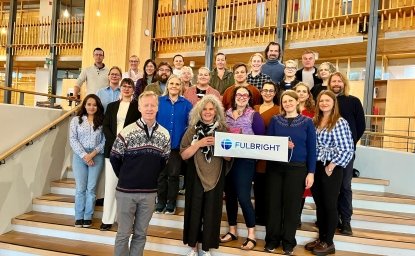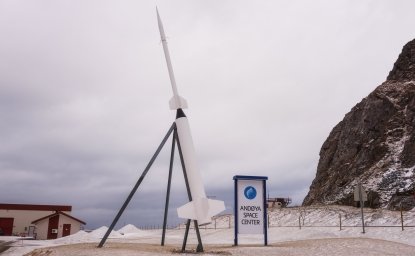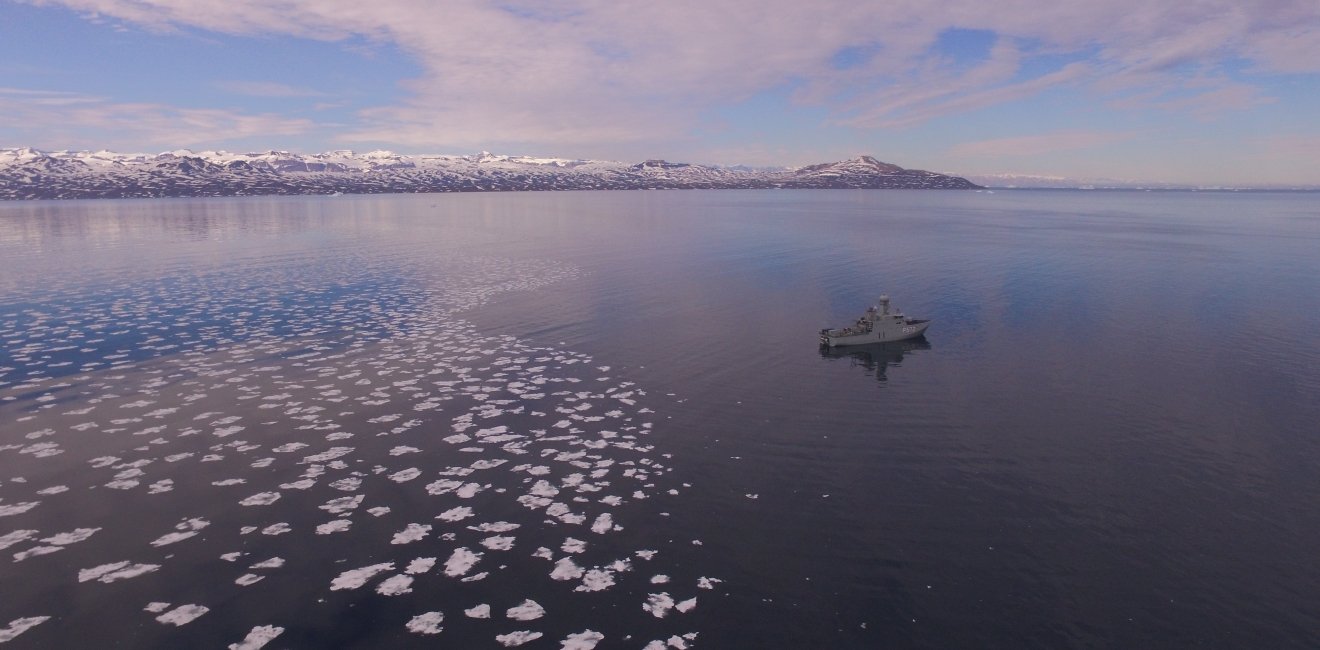
A blog of the Polar Institute
Climate change in the Arctic regions is happening three to four times faster than the global average, resulting in both new risks and opportunities. It gives Arctic and non-Arctic actors easier access, facilitating navigation, resource extraction, fisheries, and ecotourism. This development is likely to increase competition among countries and has created a risk of more incidents, miscommunications, and potential for conflicts over resources and territory. For these reasons, the Arctic is gaining strategic importance for multinational forces (MNF) mainly within a NATO context. NATO increasingly recognizes the significance of the Arctic and implications of climate change. According to the NATO Vilnius Summit Communique of 11 July 2023, taking into account Russia’s capability to disrupt Allied reinforcements and freedom of navigation across the North Atlantic, “NATO and Allies will continue to undertake necessary, calibrated, and coordinated activities, including by exercising relevant plans” to meet this strategic challenge.
Global warming and increasing geopolitical competition in the Arctic make the necessity for military operations more likely, but at the same time, military operations are becoming more difficult, complex, and costly due to the changing environmental conditions. The challenges range from extreme and unpredictable weather conditions, difficult ice conditions, small breakaways from icebergs and glaciers threatening to damage ships, to permafrost thaw. The latter can undermine military infrastructure, ports, and runways. Resources (personnel, equipment, finances) will be further challenged given the necessity to respond to the compounding effects of climate change on domestic and/or regional environments (i.e. search and rescue and disaster response). The extreme weather conditions will potentially restrict military mobility, survivability and sustainability, and also cause indirect implications such as resource fragility, and follow-on effects to governments and societies. Various capability and coordination gaps—such as insufficiency in resources and modern equipment, a lack in joint command structures, and a lack in a persistent domain awareness from sea floor to space—restrict MNF abilities to address these challenges adequately. Enhancing MNF Arctic capability requires a robust policy framework and better coordination of MNF policies and activities to maintain a strong and effective security presence in the region and to ensure an operational advantage over competitors.
There are almost as many collaborators, opinions, and efforts related to climate change in the Arctic as there are challenges for the region. One entity that may be lesser known for contributions to this body of work is the Joint Chiefs of Staff J7 Directorate for Joint Force Development.
The Joint Staff J-7, in support of the Chairman, trains, educates, develops, designs, and adapts the globally integrated, partnered, joint force to achieve overmatch in the continuum of conflict under conditions of accelerating change in the character of war. The J7 supports the Chairman Joint Chiefs of Staff (CJCS) and the joint warfighter through joint force development (JFD) in order to advance the operational effectiveness of the current and future joint force. The Allies and Partners Force Development Division (APFDD) provides direct collaboration and integration throughout the spectrum of joint force development and design in order to allow the Joint Staff, its Allies, and partners to invest in required initiatives to ensure continued, interoperable, and seamless operations together to meet objectives in the National Military Strategy. One of these initiatives is the Multinational Capabilities Development Campaign (MCDC), in which 23 nations and international organizations work together to jointly develop non-material solutions to military problems.
The CLIMARCSEC project is one of eight projects within the current MCDC project cycle 2023-24. It is led by Norway (Norwegian Ministry of Defense and Norwegian Institute of International Affairs) and includes the contributing nations of Austria, Canada, Germany, Netherlands, Finland, France, Great Brittan, Poland, Romania, Sweden, and the United States, as well as a number of observers. Each partner nation brings its own unique perspectives, challenges, and goals for the project. The project is halfway through a two-year cycle and is currently finalizing research in preparation for writing a multi-national concept that aims to provide actionable resources for partner nations.
Based on the above outlined background, the project’s focus is on examining the current challenges to the military operating environment caused by climate change and competitive activity in the Arctic and how existing gaps in operational capability and governance of Multinational Forces (MNF) could be closed and future capability requirements be met. For this purpose, the project will aim to define the governance and capability gaps and propose multinational solutions that any nation’s defense establishment may use to mitigate the existing and potential gaps in ever changing conditions. Within the wide range of military challenges and capabilities, the project focuses primarily on command, control, communication, and coordination capabilities necessary to lead effective MNF Arctic operations.
Success will require not just coordination across partner militaries which operate in the Arctic, but coordination with each country’s civilian and academic experts. In November 2023, the Wilson Center hosted the CLIMARSEC group as they gathered US expertise in a roundtable discussion. The Wilson Center has provided valuable contributions as we explore the security implications and military consequences of climate change in the Arctic. The Wilson Center, as well as the Ted Stevens Center in Alaska, US Committee on the Marine Transportation System (CMTS), and other project partners, sit at this intersection of military, civilian and academic expertise. We are grateful for the Wilson Center’s continuing collaboration and look forward to jointly solving these whole of government challenges.
Authors



Polar Institute
Since its inception in 2017, the Polar Institute has become a premier forum for discussion and policy analysis of Arctic and Antarctic issues, and is known in Washington, DC and elsewhere as the Arctic Public Square. The Institute holistically studies the central policy issues facing these regions—with an emphasis on Arctic governance, climate change, economic development, scientific research, security, and Indigenous communities—and communicates trusted analysis to policymakers and other stakeholders. Read more

Explore More in Polar Points
Browse Polar Points
Greenland’s New Governing Coalition Signals Consensus

Fulbright Arctic Initiative IV Scholar at the Polar Institute


